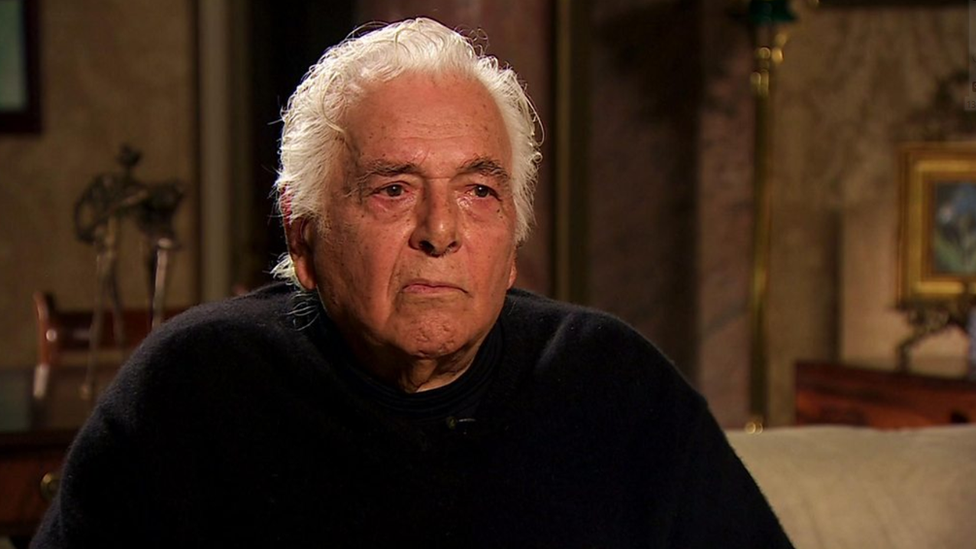Renowned Iranian filmmaker Ebrahim Golestan dies aged 100
- Published

The Iranian filmmaker and writer Ebrahim Golestan has died at the age of 100 in the UK.
His daughter Lili confirmed his death in an short Instagram post on Wednesday that said: "Father is gone. Good-bye."
Golestan leaves a long-lasting legacy and has inspired many Iranian artists.
He was born in 1922 in Shiraz, in southern Iran, when the country was opening up to the outside world.
Political and cultural curiosity led to the emergence of a generation of intellectuals who helped shape 20th Century Iran.
The young Golestan observed closely the movement for nationalising Iran's oil industry, which gathered pace in early 1950s.
He joined the communist Tudeh Party, but soon became disillusioned and devoted himself to documentary making and creative writing.
The British and US-backed coup of 1953, which brought down the anti-colonial government of Prime Minister Mohammad Mossadeq, probably contributed to this decision.
In the early 1960s Golestan began receiving international acclaim for his documentaries.
A Fire, which was a highly visual treatment of a colossal oil-well fire in south-western Iran, won two awards at the Venice Film Festival.
Golestan went on to make the ground-breaking film The Brick and the Mirror (1965), a drama about a taxi driver who finds an abandoned baby on the back seat of his car and spends the night trying to get rid of it.
It was considered one of the first works of the Iranian New Wave and inspired the next generation of Iranian filmmakers.
In the many compilations of short stories which he wrote, as well as longer pieces, Golestan paid particular attention to a narrative language that was rhythmical and well-made. He benefited from deep familiarity with classical Persian poetry and prose which was reflected in his powerful voice.
Golestan helped many Iranian artists who expressed growing discontent with the monarchy of Mohammad Reza Pahlavi during the 1960s, although he himself decided to steer clear of open political activity.
It was also during this time that he started a close relationship with the pre-eminent female poet Forough Farrokhzad.
Farrokhzad became the literary voice of Iranian women before she died in a car crash in 1967 at the age of 32.
Many Iranian critics believe her relationship with Golestan was instrumental in shaping her literary output.
In 1975, four years before the Islamic Revolution that overthrew the shah, Golestan decided to leave Iran and move to England. He eventually settled in Bolney, West Sussex, and bought a Victorian mansion.
Although he never returned to Iran over the next five decades, Golestan kept contact with Iranian cultural figures, many of whom were inspired by him.
However, those who visited him during these long years often regretted that he refrained from artistic production, instead giving only infrequent interviews on his own legacy.
In 2003, he experienced a personal tragedy when his son Kaveh Golestan, a Βι¶ΉΤΌΕΔ cameraman, died in northern Iraq after stepping on a landmine.